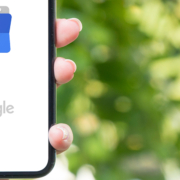Since the beginning of the year, NCL’s Fraud.org campaign has received hundreds of complaints from consumers reporting that scammers involved in a variety of frauds requested payment via gift cards. Dozens of those complaints mentioned that they specifically wanted payment via Google Play gift cards. Unfortunately, many of the complaints we received indicated that the consumer had already sent the money. The average losses reported in such cases were $1,937.
The story we heard from one consumer in Alaska is typical of this type of scam. The consumer received a voicemail saying that she owed the IRS and that, if she didn’t pay, her bank accounts and Social Security would be frozen. She was told that a warrant for her arrest would be put out if she didn’t pay immediately. When she called back, she was told to buy Target and Google Play gift cards and give the scammer the codes on the back of the cards, which she did. It wasn’t until the scammer asked for even more money for a “security deposit” that she realized it was a scam. Unfortunately, the scammers had already drained the money from the gift cards, leaving her out thousands of dollars.
Unfortunately, complaints like this one are just the tip of the iceberg. Gift cards are popular targets for scammers. According to the FTC, $74.3 million was lost due to gift card and reload card scams in the first nine months of this year. With the holiday season upon us, it’s likely that scammers will ramp up their activity even more.
To help you protect yourself from scams involving gift cards, Google and NCL are partnering to help educate consumers about how to spot the warning signs of these scams. The most important thing to know is that Google Play gift cards can only be used to purchase apps, movies, books, and other video game or app-related purchases through the Google Play store. Don’t be misled. If anyone ever asks you to pay them with a Google Play gift card, it’s a scam. Period.
Five common Google Play gift card scam scenarios
IRS and government imposter
You may get a phone call from someone claiming to be the IRS, police, or another official government entity. If this caller tries to scare you into buying gift cards as payment for back taxes or for other legal situations, hang up the phone; this caller is a scammer. Even if the caller knows and recites the last four digits of your Social Security number, this is still a scam. The caller may become hostile or insulting and they may threaten you with arrest, deportation, or suspension of a business or driver’s license. These are empty threats. Under no circumstances does the IRS, police, or any government entities require payment with gift cards to resolve tax or other legal situations. In fact, the Treasury Inspector General for Tax Administration states on its website that any call requesting that taxpayers place funds on a Google Play Gift Card or any other gift cards to pay taxes and fees is an indicator of fraudulent activity. Do not buy gift cards and provide this caller with the codes under any circumstances.
Tech support
You may get a phone call from someone claiming to be tech support or a computer software company asking for Google Play gift cards as payment to fix your computer. Alternatively, you may get an email from a computer software company asking you to call them so they can protect your computer from harmful viruses or fix a program you use. The email may contain a virus that causes computer problems. When you call, they will ask for payment and may say that because your computer has been compromised, your credit cards have also been compromised. Then they will ask for payment by Google Play gift card.
Family emergency
A caller may claim to be a family member in trouble (or an attorney or representative of a family member who is in trouble) and needs to be receive money in the form of gift cards to remedy their emergency situation. The caller may try to deter you from contacting the family member in question to validate the claims — don’t believe them.
Discounted goods or services
Someone may tempt you with a great deal and offer a large discount if you pay with a Google Play gift card instead of paying with a credit/debit card. They may also claim there are issues with a credit/debit card payment you recently made so you must pay with a Google Play gift card instead.
Email requests
You might get an email from someone you know asking you to perform a “task” or a “favor” to purchase Google Play gift cards and email them the redemption codes. While the sender’s name and email address may look like a family member, friend, or colleague, this is actually a sophisticated phishing scam disguised as a trustworthy request from someone you know. Do not buy gift cards and respond with the redemption codes. If you want to confirm whether or not the request is legitimate, do not respond directly to the email sender or click on any links in their email. Instead, contact the person requesting the gift codes face to face or via an alternative communication method (e.g., the phone number you regularly use to call/text them).
Protect yourself and your loved ones
It is important to know that all of the scenarios outlined above are scams. Scammers may dictate which store you should purchase Google Play gift cards from (e.g., Target, Walmart, CVS, etc.). Scammers may discourage you from speaking to or answering questions from store associates, colleagues, friends, or family members.
If you find yourself in any of the situations above, or something like them, you’re at risk of being scammed. Don’t purchase gift cards and share the redemption codes with the requester over the phone or in writing. If you do, your money is likely gone. If you or a family member has experienced a scam, please immediately report it to your local police department. Victims of scams may be embarrassed to report the scam to anyone, but it can help prevent others from being scammed. You can also report the scam to the Federal Trade Commission on its website or directly with Google by phone at the toll-free U.S. phone number (1-855-836-3987) or by email (visit g.co/Play/Contact and click on “Contact Us”).
The bottom line is that any time you are asked to pay someone with a Google Play gift card in exchange for goods or services, it’s a scam. In fact, it’s a violation of Google Play’s Terms of Service to use Google Play gift cards to pay for anything outside of the Google Play Android app store.
Unfortunately, despite our best efforts, scammers still find ways to defraud consumers. If this happens to you, contact the company that issued the gift card. The company’s contact info is usually on the card or the card’s packaging (the FTC also has a list here). It’s rare, but if you act quickly enough the company may be able to refund your money. Also, contact the store where you purchased the card and file a complaint at Fraud.org via our secure online complaint form. We share complaints with our network of nearly 200 law enforcement and consumer protection agency partners who can and do put fraudsters behind bars.
Read our other Fraud Alerts here.
















